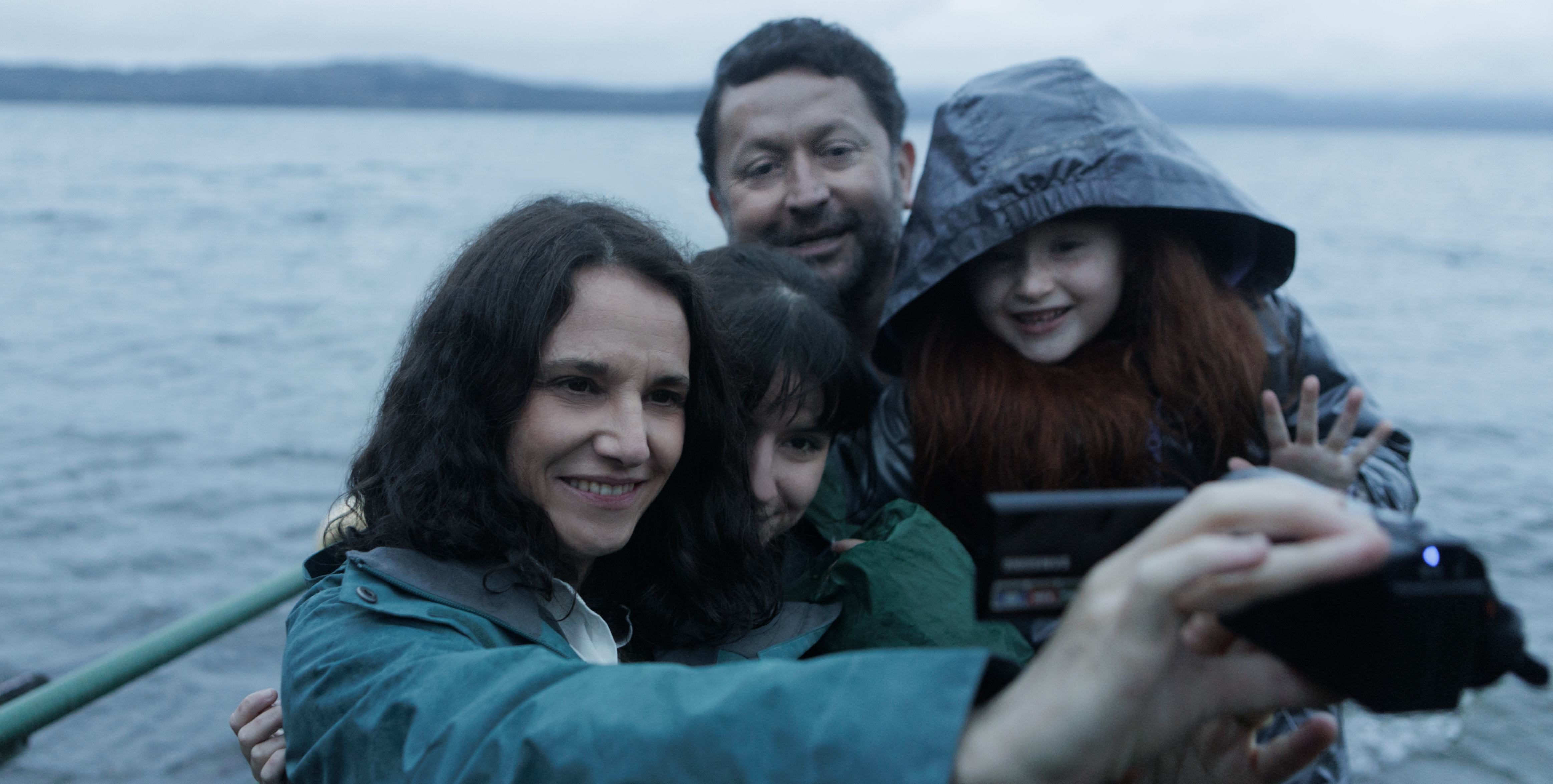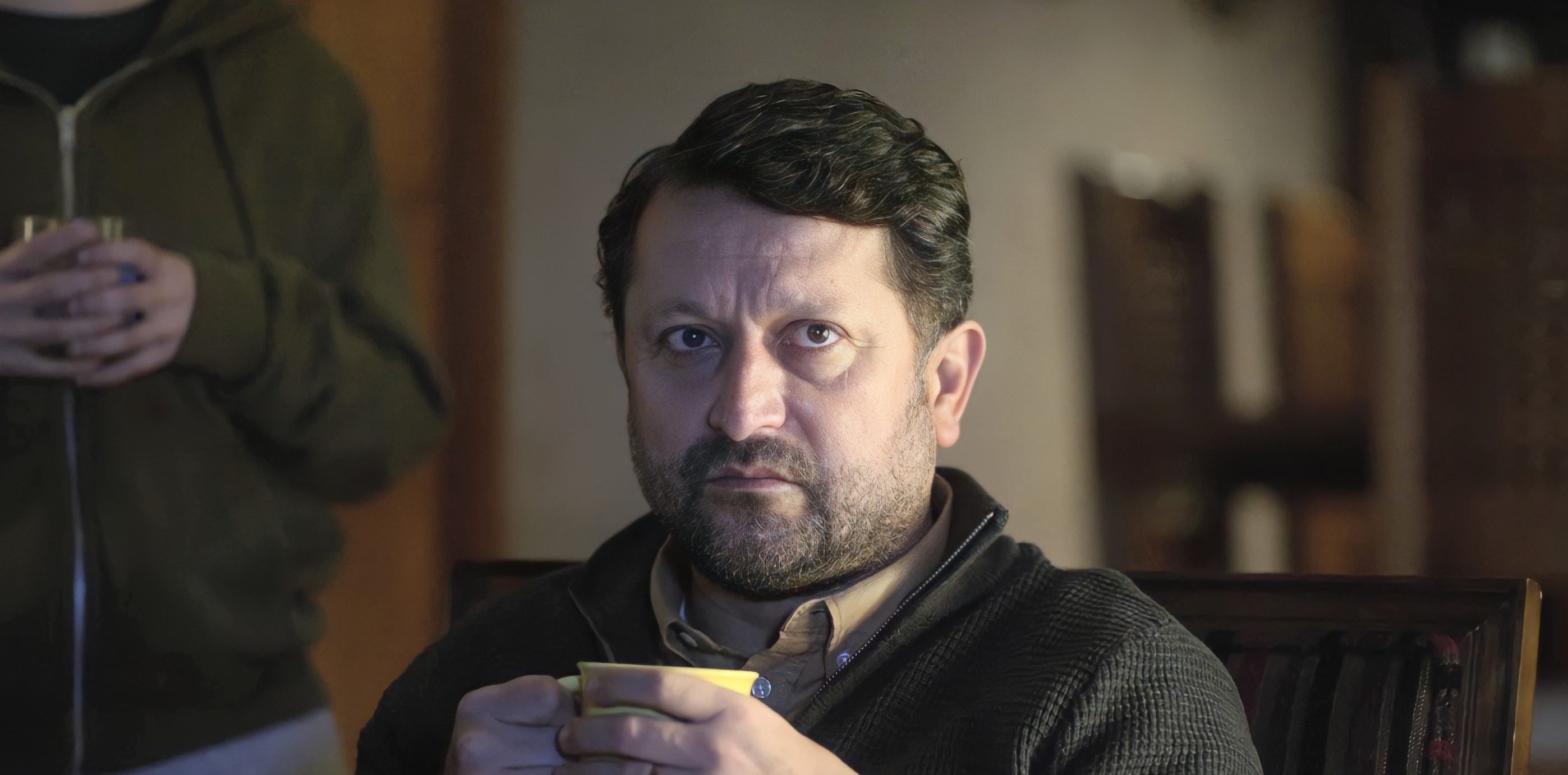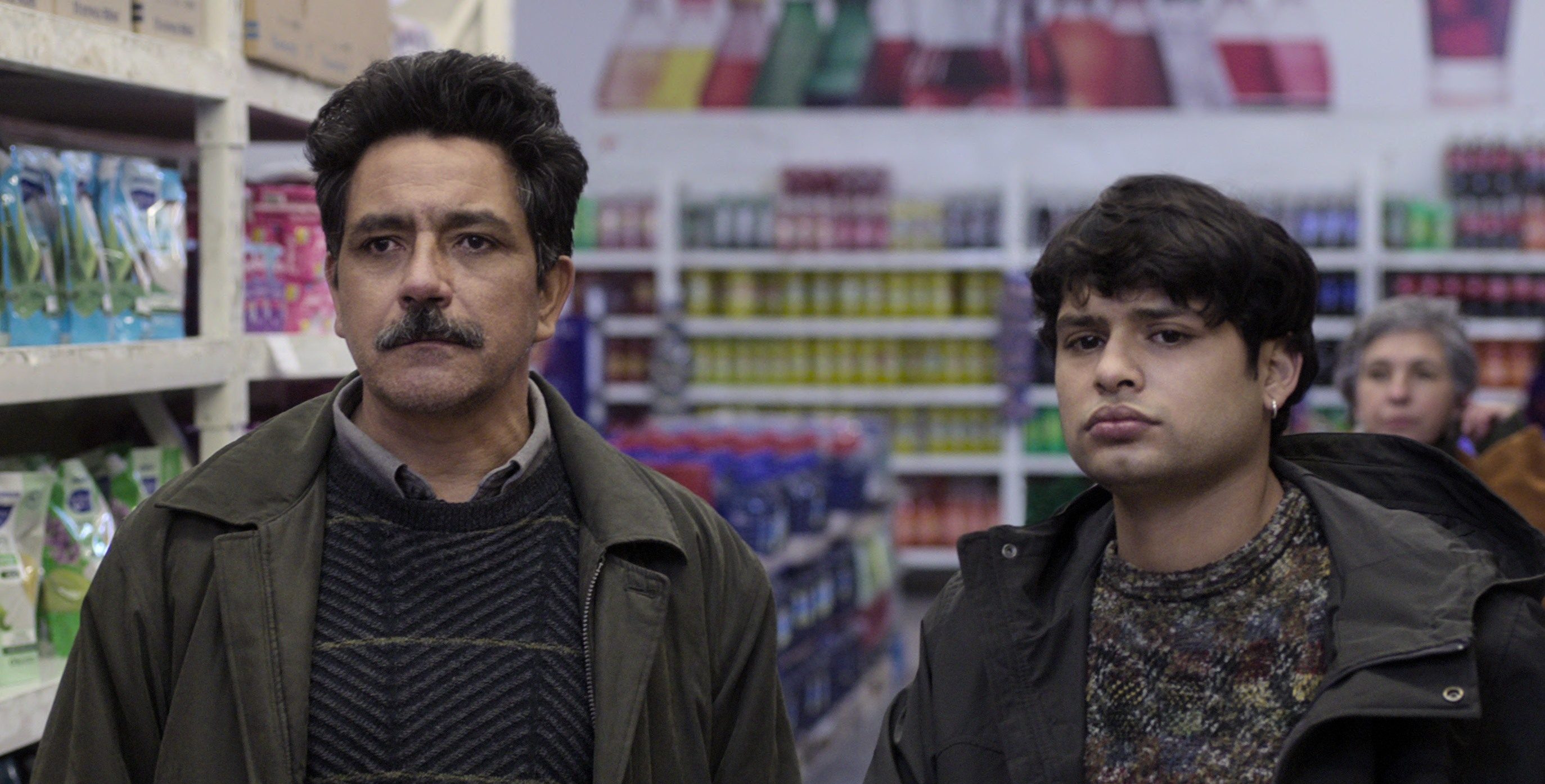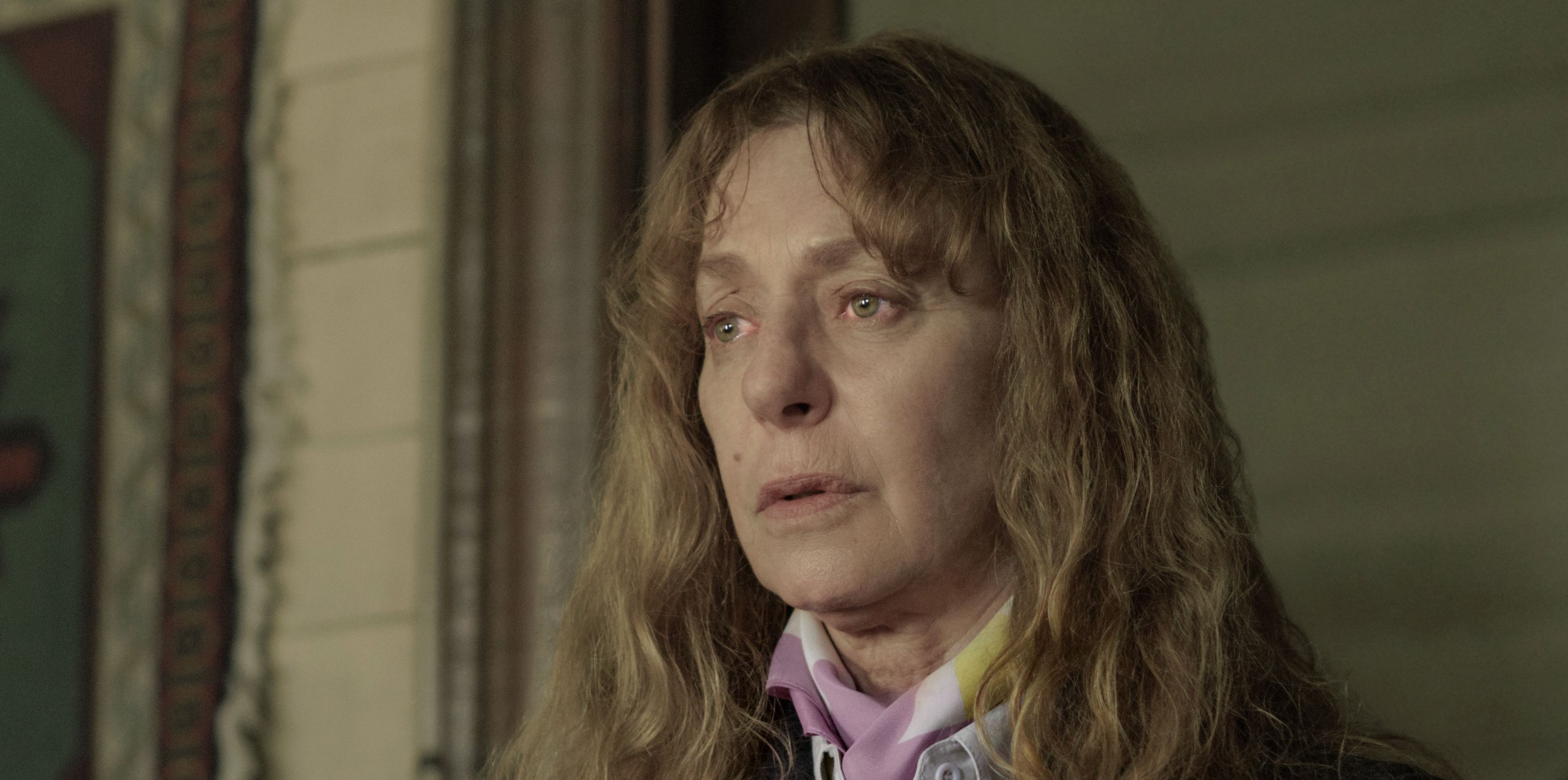Directed by Gaspar Antillo and Claudia Huaiquimilla, Netflix’s thriller series ‘42 Days of Darkness’ centers around the disappearance of Verónica Montes, who vanishes from her house located in the affluent Altos del Lago condominium. Verónica’s sister Cecilia and a lawyer named Victor Pizarro join hands to unravel the mystery behind the disappearance. Their efforts to bring out the truth lead them to suspect Verónica’s husband Mario Medina of being involved in his wife’s fate. The Chilean series ends with startling developments concerning Mario and the investigation. If you are up for a detailed look at the same, you are at the right place! SPOILERS AHEAD.
42 Days of Darkness Recap
‘42 Days of Darkness’ begins with Verónica helping Karen and Emilia, her two daughters, get ready to leave for school with her husband Mario. After the three of them have left, Verónica receives an unknown visitor. Mario receives a call from an unknown man and woman, who tell him that they have kidnapped his wife. After the class, Karen arrives home and realizes that her mother is missing. Karen calls her father to inform him of Verónica’s disappearance and he informs the police about the same. They start their search for the disappeared. Meanwhile, Víctor Pizarro starts to investigate the disappearance of Verónica with Nora and Braulio.

Pizarro and his team consider several theories regarding Verónica’s disappearance, including running away with a possible lover, the woman staging her own vanishing, or Mario being involved in the same. When the lawyer realizes that the police investigation isn’t going in the right direction, he offers the department his service, only to get dismissed by an official. He meets Cecilia and offers to represent the Montes family. Nora goes through Mario’s call log and finds out that he didn’t even call his wife’s phone once after learning about her disappearance. His hesitation to provide DNA and blood samples to the police further increase the lawyer’s doubts.
When Mario realizes that Cecilia suspects him, he informs the police that the woman who called him regarding the kidnap is his sister-in-law. The police seek the assistance of a psychologist to gain an opinion about Mario. The psychologist, after noticing that the husband is using past tense while talking about his disappeared wife, asks the investigator to keep an eye on him. In the meantime, the authorities bring police dogs to discover any materials they have missed. Mario gets agitated after knowing that the dogs are efficient.
The next day, he calls the police and informs them that he found Verónica’s dead body in the attic of their house. The autopsy suggests that Verónica’s death is a suicide. Years later, Pizarro convinces Cecilia to conduct another forensic analysis of the body. The authorities exhume the body and the analysis suggests that the cause of Verónica’s death can be the use of a toxic substance. Still, the investigation comes to a dead end. Pizarro, obsessed with the case, finds it hard to move on from investigating the same.
Many years later, he meets one of his former clients, who helps him identify the man in the police sketch as Jaime Ñunez Jara, who called Mario the day Verónica disappeared. With the help of Pizarro, Asenjo arrests Jaime, who confesses to killing Verónica on behalf of Mario for a settlement of 5 million pesos. Mario gets arrested on suspicion of hiring Jaime to kill his wife. Although Jaime confesses, the prosecution confronts the need for evidence that connects him and Mario to convict the latter.
42 Days of Darkness Ending: Did Mario Hire Jaime? Are Mario and Jaime Guilty of Killing Veronica?
As far as Pizarro and Cecilia are concerned, Jaime’s confession confirms their theory that Mario is involved in the crime in one way or another. However, their satisfaction doesn’t last long as the prosecution demands more evidence to prove that the deceased’s husband had paid Jaime to kill her. Pizarro’s entire case was based on the potential testimony of Roberto, who had presumably seen Jaime calling Mario from the internet café. Roberto, however, backs off from helping Pizarro since he is not sure about identifying Jaime as the caller after five long years. Roberto doesn’t wish to play with the fate of a person without an absolute conviction, leaving Pizarro with nothing against Mario.

Since the prosecution fails to provide any evidence that proves Mario indeed paid Jaime, the court starts to lean towards the husband. In addition, Jaime decides to not testify in court, which makes his confession of getting hired by Mario invalid as evidence. Without Jaime’s confession, the prosecution’s case against Mario falls and leads to his acquittal. Mario succeeds in walking away from the court as the defense wins his case. Jaime’s case gets considered as a robbery with homicide and he gets sentenced as the sole murderer of Verónica.
Since the theory that Mario hired Jaime is just based on the latter’s words, even Pizarro doesn’t get completely convinced of the same. The dates Jaime had money with him are well before Verónica’s disappearance and subsequent death, which challenges the believability of his confession. Furthermore, there isn’t any evidence of Mario transferring or handing over a sum of 2 million to him, which further complicates the case. Ultimately, the judiciary demands evidence to consider a theory as a fact and in the eyes of the judiciary, Mario neither hired Jaime nor did he have any part to play in his wife’s death.
Why Doesn’t Jaime Testify Against Mario?
Even when Pizarro fails to garner any evidence against Mario, he still believes that his case will stand in the court just with Jaime’s confession and testimony. Astounding him, Jaime chooses to not testify, which makes his confession invalid. Pizarro believes that Mario gave Jaime enough money to silence him to walk away from the trial. Since he has a daughter who lives alone, the lawyer thinks that he must have made a deal with Mario or his lawyer for the sake of his child. As the only breadwinner of the family that comprises just him and his daughter, Jaime may have considered her life to not testify.
Whether Jaime testifies or not, he knows that the only road ahead of him is the one to prison. Pizarro thinks that Jaime may have considered not testifying more advantageous to him and his daughter. As someone whose sole concern always has been survival, it isn’t a surprise that Jaime may have chosen silence over justice. Although Pizarro never considers that Mario is innocent, Verónica’s daughters Karen and Emilia believe that Jaime chose to not testify because their father has nothing to do with him.
Do Pizarro and Joaco Reconnect? Why Are They Going to Santiago?
Pizarro’s commitment to serving the people around him and his obsession to see justice prevailing in his society harms his relationship with his son Joaco severely. As a father, he has never been there for his son and the latter eventually disconnects with him emotionally. After the trial of Mario and Jaime, the lawyer realizes that his son deserves a better father. He spends time with him and they even leave for camping. Verónica’s death and the subsequent investigations harm the vulnerable bond Pizarro and Joaco share and the lawyer finally amends the same to be with his son.

While camping, Pizarro suggests to Joaco that they should live in Santiago to fulfill the latter’s dream. Joaco has always dreamt of living in the capital city of Chile, where the possibilities are endless. He has been longing to leave the limitations of Southern Chile to spread his wings. Pizarro, as an affectionate father, agrees to help him materialize his dream by moving to the city. However, his decision may not be just to see his son happy. After informing Joaco about his decision, Pizarro takes a newspaper from his pocket and looks at a report about a young woman who has been missing for three days.
The missing woman’s case must have happened in Santiago and Pizarro’s motivation to leave for the capital city can be his willingness to become the lawyer of the woman’s family. After losing Mario’s trial, Pizarro needs a win to convince himself that justice can prevail in his country. So, there is a possibility that he is going to Santiago to assist the family. It is nearly impossible for Pizarro to not commit himself for the sake of justice and the missing woman’s case can be the next chapter in his life. If that’s the case, his reviving relationship with Joaco may get affected.


You must be logged in to post a comment.